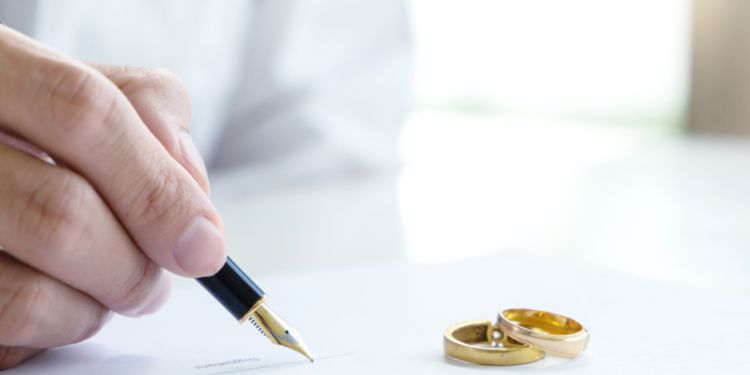
Ireland is a beautiful setting for a wedding, with its serene landscapes, breathtaking scenery, and warm hospitality, and you really are spoiled for choice when it comes to beautiful wedding venues, from ancient castles and cathedrals to stately homes and luxury hotels. People come from all over the world to tie the knot on the Emerald Isle, and the process of getting married there is pretty straightforward and relatively easier than in other European countries.
Conditions to meet to get married in Ireland
Getting married is one of the most significant milestones in your life. However, there are some legal requirements and conditions you need to meet in order to get married in Ireland to ensure that your marriage is legally recognised. The conditions to get legally married in Ireland are the same, no matter if you are living in the country or if you are from abroad, if you are a same-sex couple or heterosexual, secular or religious. The only legal conditions you need to meet are that both of you need to be at least 18 years old, not currently married to another person, not related, and the marriage must be a genuine one, i.e., not for visa purposes.
Marriage registration form
If you are planning to get married in Ireland, whether you are an Irish citizen or a foreign national, you need to get a Marriage Registration Form or a marriage licence, as it's sometimes called. To get a Marriage Registration Form, you must notify the registrar in the Civil Registration Office of your intention to marry at least three months before the big day. You need to make a Marriage Notification Appointment with the registrar in order to give the notification, and both of you must attend in person. You should book your appointment as far in advance as possible, as appointments fill up quickly, particularly during peak wedding season.
How to book a notification appointment
All marriage notifications are handled through the Civil Registration Office Service in each county.
- You must contact the Civil Registration Service to make a marriage notification appointment with the Registrar in person. You can also book an appointment for your registry meeting online for certain areas of the country. Both of you will need to be present for the meeting, and you can bring an interpreter with you if needed.
- If you are both living outside of the country and cannot attend in person, sometimes the registrar will give you a postal notification. This is a form that can be filled out and sent back by post. However, you still need to meet the registrar five days in advance of your wedding day to get the Marriage Registration Form.
Documents needed for marriage in Ireland
There are a number of documents you will need to bring with you when attending your notification appointment, whether you are an Irish citizen, EU citizen, or a non-Irish citizen. Both copies and original documents will be required, as well as English translations in certain cases. These are:
- The original and a colour photocopy of your passports for identification;
- The original and a photocopy of your birth certificates (if you were not born in the EU, you will need a letter from the embassy proving it is real or an apostille stamp from an embassy). Embassies of Ireland can legalise certain documents that were created abroad so that they are acceptable for use in Ireland;
- Nullification/dissolution/divorce certificate if you have previously been married;
- Death certificate if your previous spouse passed away;
- Proof of immigration status if you are not an EU or Irish citizen;
- Non-Irish citizens may have to offer a Letter of Freedom to Marry from certain home countries;
- Your PPS numbers if you currently reside in Ireland;
- Proof of address – original and a photocopy dated within the last 3 months;
- Data Capture Form – you will need to download and complete this form and bring it with you.
You will also have to provide the following information about the ceremony:
- Location and date of the marriage ceremony;
- Type of ceremony, i.e., religious, secular or civil;
- Details of the officiant;
- Date of birth and names of the two witnesses.
The marriage notification appointment in Ireland
When you meet the registrar at the marriage notification appointment, there is a declaration that both of you sign saying that there is no known reason why this marriage would not be lawful. If everything is in order, you will be issued with a Marriage Registration Form (MRF), which is valid for six months. This is the form that will be signed on the day of your wedding ceremony. You give it to the solemniser who will be solemnising your marriage. A solemniser is someone officially authorised by the General Register Office (GRO) to conduct legal marriages.
There is a €200 notification fee that you need to pay. If you are a same-sex couple who are already in a civil partnership that is registered in Ireland and now wish to marry, you pay a reduced fee of €50. This does not include the additional fee that needs to be paid to a priest or celebrant.
The different types of wedding ceremonies in Ireland
The current options for getting legally married in Ireland are:
Religious ceremonies
If you are opting for a religious ceremony, it needs to be performed by a registered solemniser of the particular religion, for example, a Catholic priest if it's a Catholic wedding, and it must take place in their place of worship, such as a church.
Civil ceremonies
Civil ceremonies are performed by a civil registrar in a registry office, or in an approved room or venue. Civil ceremonies can only take place Monday to Friday, and only in licensed venues. The ceremony can't include any mention of religion or spirituality.
Secular ceremonies
The secular or humanist ceremony is gaining a lot more popularity in Ireland. It's a more flexible option and isn't as strict about location or timeline. The ceremony doesn't have any particular guidelines and is usually deeply personal and meaningful to the couple. A secular wedding can be held inside or outside, on a Saturday or a Sunday. If you would like a secular ceremony, it must be carried out by a registered secular solemniser.
Good to know:
In 2015, Ireland became the first country in the world to introduce same-sex marriage through a national referendum.
What if you need to postpone the wedding in Ireland?
If for any reason you need to postpone your marriage ceremony, you have two options. If the new date is within the six-month period, your form can be amended (contact the civil registration office that did your paperwork about this). If you're not getting married within six months, contact the civil registration office and give them your new date at least three months in advance. You'll need to meet with the registrar again to get a new marriage registration form. There is no charge for this.
Selecting a wedding venue in Ireland
As you would expect, your wedding venue must also meet specific requirements, such as being suitable for a wedding and having enough space for your guests. Your wedding venue must be either:
- a building that is open to the public
- or a courtyard, garden, field or piece of ground that is open to the public and is near to and usually shared with the building
Your wedding venue must also:
- be clearly identifiable by description and location;
- allow unrestricted access, without charge;
- meet planning permission, fire safety and health and safety requirements;
- have public liability insurance cover;
- be accessible to all;
- have no recent or current connection with any religion, religious practice or persuasion.
Things to do after the wedding day
Your signed Marriage Licence must be returned to the Registry Office as soon as possible to complete the final step of the marriage registration process. You have a maximum of 30 days to do this.
You can then go to your nearest Registrar of Births, Marriages and Deaths to order copies of your marriage certificate, at a cost of €20 each (Postage costs: €2 for each order in Ireland, or €3 for each order outside of Ireland).
Getting a divorce in Ireland
Ireland was one of the last countries in Europe to lift its ban on divorce. The country voted by a slim margin to end its long-standing ban on divorce during a 1995 referendum.
Ireland has a no-fault divorce system, which means that no element of fault needs to be proven to apply for a divorce. But before you can start the process of getting a divorce, you must meet the following criteria:
- You and your spouse must be living apart for at least two years during the previous three years. Living apart can include living in the same house, as long as there is no intimate and committed relationship.
- One of you must be living in Ireland or have lived in the country for one year before applying for a divorce.
- There must be a mutual understanding that there is no prospect of reconciliation.
- Appropriate provisions should be in place for the well-being of both spouses, any children, and dependent family members.
A divorce settlement in Ireland has to be approved by a court. Proceedings are usually in the Circuit Family Court. This is done by lodging a Family Law Civil Bill in the Circuit Court office.
If financial relief is sought, the applicant must file an Affidavit of Means. Where there are dependent children, an Affidavit of Welfare must also be filed. Some Court Offices also require a Certificate to say that alternative dispute resolution has been considered as an option.
On average, divorce in Ireland typically takes around 12 to 24 months from the time of the application. However, more complicated divorces can take 3 years or longer, but it really depends on the number and complexity of issues that need to be worked out, such as custody of children, division of assets, and financial and living arrangements.
Once the court is satisfied with the arrangements, a final decree is issued, officially ending the marriage.
Good to know:
The longer the time spent in court, the more costly the process can be.
We do our best to provide accurate and up to date information. However, if you have noticed any inaccuracies in this article, please let us know in the comments section below.








